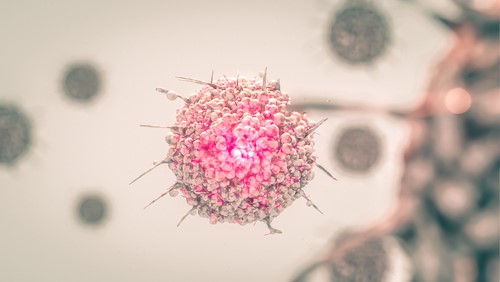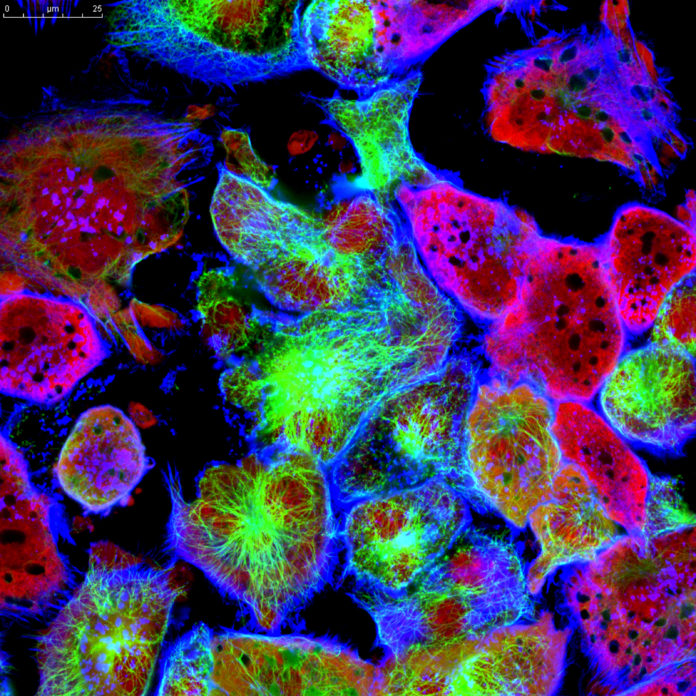A study aimed to discern the function of ZNF703 (Zinc finger 703) and its underlying mechanism in triple-negative breast cancer (TNBC). The results appeared in JCO Precision Oncology.
ZNF703 expressions in tissue microarray were retrospectively assessing using immunohistochemistry. The study also analyzed cell proliferation by SRB assay and colony formation assay, as well as cell cycle distribution by flow cytometry were assessed. Western blotting was used to analyze protein levels, and Kaplan-Meier analysis was used to plot survival analysis.
The results showed that ZNF703 was expressed in approximately 34% of triple-negative human breast tumors by immunohistochemistry. In vitro, the researchers noted, ZNF703 knockdown had potent inhibitory effects on TNBC cell proliferation and cell cycle, with cyclin D1, CDK4, CDK6, and E2F1 downregulated, while Rb1 upregulated. Kaplan-Meier analysis demonstrated that high mRNA expression of ZNF703 was associated with worse overall survival (HR=3.04; 95% CI, 1.22 to 7.57, P = 0.017).
“Taken together, the results identified that targeting ZNF703 contributed to the anti-proliferative effects in TNBC cells, due to induced G1-phase arrest. This study is the first to identify ZNF703 as a potentially important protein that is involved in TNBC progression,” the researchers concluded.
Link: https://pubmed.ncbi.nlm.nih.gov/35236318/
Keywords: Cell cycle, Cell proliferation, Prognosis, Triple-negative breast cancer, ZNF703









